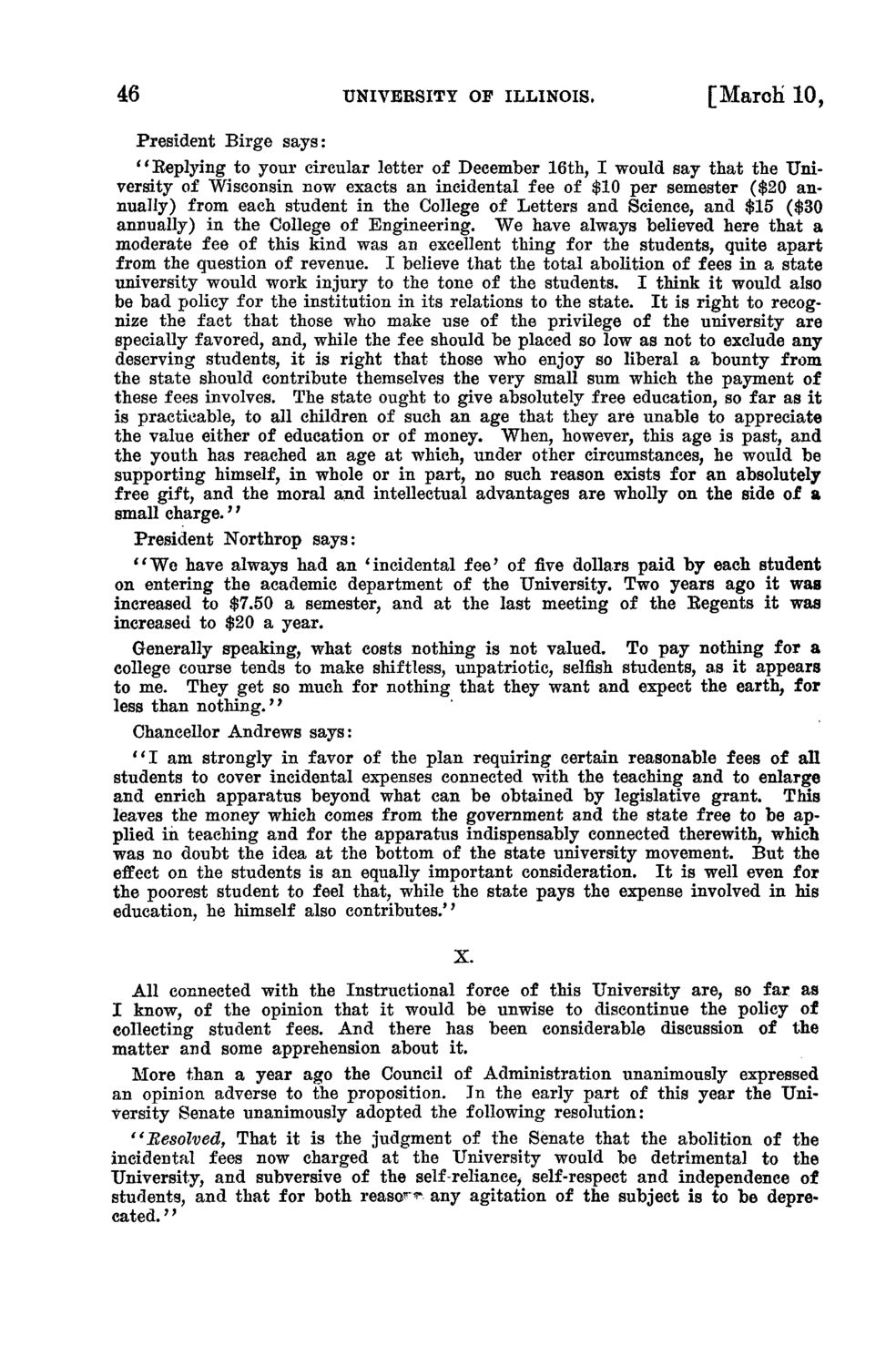| |
| |
Caption: Board of Trustees Minutes - 1904
This is a reduced-resolution page image for fast online browsing.

EXTRACTED TEXT FROM PAGE:
46 UNIVERSITY OF ILLINOIS. [MarcH 10, President Birge says: "Keplying to your circular letter of December 16th, I would say that the University of Wisconsin now exacts an incidental fee of $10 per semester ($20 annually) from each student in the College of Letters and Science, and $15 ($30 annually) in the College of Engineering. We have always believed here that a moderate fee of this kind was an excellent thing for the students, quite apart from the question of revenue. I believe that the total abolition of fees in a state university would work injury to the tone of the students. I think it would also be bad policy for the institution in its relations to the state. It is right to recognize the fact that those who make use of the privilege of the university are specially favored, and, while the fee should be placed so low as not to exclude any deserving students, it is right that those who enjoy so liberal a bounty from the state should contribute themselves the very small sum which the payment of these fees involves. The state ought to give absolutely free education, so far as it is practicable, to all children of such an age that they are unable to appreciate the value either of education or of money. When, however, this age is past, and the youth has reached an age at which, under other circumstances, he would be supporting himself, in whole or in part, no such reason exists for an absolutely free gift, and the moral and intellectual advantages are wholly on the side of a small charge.'' President Northrop says: " W e have always had an 'incidental fee' of five dollars paid by each student on entering the academic department of the University. Two years ago it was increased to $7.50 a semester, and at the last meeting of the Eegents it was increased to $20 a year. Generally speaking, what costs nothing is not valued. To pay nothing for a college course tends to make shiftless, unpatriotic, selfish students, as it appears to me. They get so much for nothing that they want and expect the earth, for less than nothing." Chancellor Andrews says: " I am strongly in favor of the plan requiring certain reasonable fees of all students to cover incidental expenses connected with the teaching and to enlarge and enrich apparatus beyond what can be obtained by legislative grant. This leaves the money which comes from the government and the state free to be applied in teaching and for the apparatus indispensably connected therewith, which was no doubt the idea at the bottom of the state university movement. But the effect on the students is an equally important consideration. It is well even for the poorest student to feel that, while the state pays the expense involved in his education, he himself also contributes.'' X. All connected with the Instructional force of this University are, so far as I know, of the opinion that it would be unwise to discontinue the policy of collecting student fees. And there has been considerable discussion of the matter and some apprehension about it. More than a year ago the Council of Administration unanimously expressed an opinion adverse to the proposition. In the early part of this year the University Senate unanimously adopted the following resolution: "Besolved, That it is the judgment of the Senate that the abolition of the incidental fees now charged at the University would be detrimental to the University, and subversive of the self-reliance, self-respect and independence of students, and that for both reason any agitation of the subject is to be deprecated. ' '
| |